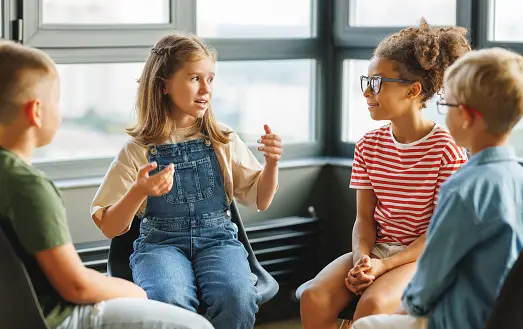
How to Develop Mental Literacy Skills In 2023? In today’s fast-paced world, it is essential to not only focus on improving our physical health but also nurturing our mental well-being. Mental literacy skills play a crucial role in enhancing our cognitive abilities, emotional intelligence, and overall mental resilience. Developing these skills can help us navigate the challenges of life with greater ease and lead to a more fulfilling and successful future. In this article, we will explore effective strategies and techniques to develop mental literacy skills in 2023.
The Importance of Mental Literacy
In an increasingly complex and challenging world, mental literacy skills have become more important than ever. Mental literacy refers to the ability to understand and manage our thoughts, emotions, and behaviors effectively. It empowers individuals to make informed decisions, build healthy relationships, and cope with stress and adversity. By developing mental literacy skills, individuals can unlock their true potential and lead more fulfilling lives.
Understanding Mental Literacy Skills

Mental literacy skills encompass a wide range of abilities that contribute to our overall mental well-being. These skills include self-awareness, emotional intelligence, cognitive flexibility, resilience, positive thinking, communication skills, and the power of visualization and imagination. By developing these skills, individuals can enhance their problem-solving abilities, adapt to change, and maintain positive mental health.
The Benefits of Developing Mental Literacy Skills
Developing mental literacy skills offers numerous benefits. It helps individuals develop a deeper understanding of themselves and others, leading to improved relationships and effective communication. It also enables individuals to navigate challenges and setbacks with resilience, promoting mental well-being. Additionally, mental literacy skills contribute to enhanced creativity, critical thinking, and decision-making capabilities, which are valuable in both personal and professional contexts.
Enhancing Self-Awareness

Practicing Mindfulness
Mindfulness is a powerful technique that enhances self-awareness and cultivates a non-judgmental awareness of the present moment. By engaging in mindfulness practices such as meditation or deep breathing exercises, individuals can develop a heightened sense of self-awareness, allowing them to better understand their thoughts, emotions, and reactions.
Read More: Different Types of Computer Peripherals In 2023
Reflective Journaling
Reflective journaling involves writing down thoughts, feelings, and experiences to gain insights and self-reflection. By regularly journaling, individuals can explore their inner world, identify patterns, and gain clarity about their emotions and behaviors. Reflective journaling promotes self-awareness and facilitates personal growth.
Cultivating Emotional Intelligence
Identifying and Managing Emotions
Emotional intelligence involves recognizing and understanding one’s emotions and those of others. By developing emotional intelligence, individuals can navigate conflicts, build empathy, and foster healthier relationships. Practicing emotional regulation techniques, such as deep breathing or taking a pause before reacting, can help manage emotions effectively.
Empathy and Compassion
Empathy and compassion are vital components of emotional intelligence. By putting ourselves in others’ shoes and showing understanding and kindness, we can foster stronger connections and contribute to a more compassionate and empathetic society. Engaging in acts of kindness and actively listening to others’ experiences are powerful ways to develop empathy and compassion.
Building Cognitive Flexibility
Embracing Diverse Perspectives
Cognitive flexibility refers to the ability to adapt and shift perspectives when faced with new information or challenges. It involves open-mindedness, curiosity, and a willingness to consider alternative viewpoints. Engaging in activities that expose individuals to diverse perspectives, such as reading different genres of books or participating in discussions with people from different backgrounds, can enhance cognitive flexibility.
Challenging Cognitive Biases
Humans are prone to cognitive biases, which can limit our thinking and decision-making abilities. Developing cognitive flexibility involves recognizing and challenging these biases. By questioning assumptions, seeking alternative explanations, and considering multiple viewpoints, individuals can expand their thinking and make more informed choices.
Nurturing Resilience
Developing Coping Mechanisms
Resilience is the ability to bounce back from adversity and maintain a positive mindset. Building resilience involves developing effective coping mechanisms. These may include seeking social support, practicing self-care activities, and reframing negative experiences as learning opportunities. By cultivating resilience, individuals can navigate challenges with greater ease and maintain their mental well-being.
Embracing Failure as a Learning Opportunity
Failure is an inevitable part of life, and viewing it as a learning opportunity can foster resilience and growth. By reframing failure as a stepping stone towards success, individuals can develop a growth mindset and embrace challenges with enthusiasm. Learning from failures helps individuals build resilience and develop the determination to persevere in the face of obstacles.
Fostering Positive Thinking
Affirmations and Self-Talk
Positive affirmations and self-talk can have a profound impact on our mindset and overall well-being. By consciously practicing positive self-talk and repeating affirmations that reinforce desired beliefs and qualities, individuals can cultivate a positive mindset. Positive thinking enhances motivation, self-confidence, and resilience.
Gratitude Practice
Gratitude practice involves regularly acknowledging and appreciating the positive aspects of life. By expressing gratitude for the simple joys, accomplishments, and relationships, individuals can shift their focus towards positivity. Gratitude practice promotes optimism, reduces stress, and improves overall mental well-being.
Strengthening Communication Skills
Active Listening
Active listening is a fundamental communication skill that involves fully focusing on and understanding the speaker’s message. By practicing active listening, individuals can improve their relationships, resolve conflicts effectively, and foster a sense of empathy. Active listening requires attentiveness, patience, and an open mind.
Effective Expression of Thoughts and Feelings
Clear and effective expression of thoughts and feelings is essential for healthy communication. By honing communication skills such as assertiveness, active expression of emotions, and using appropriate body language, individuals can convey their ideas and emotions with clarity. Effective communication fosters understanding, trust, and stronger connections.
Harnessing the Power of Visualization and Imagination
Mental Imagery Techniques
Mental imagery techniques involve creating vivid mental pictures to enhance focus, relaxation, and motivation. By visualizing desired outcomes or engaging in guided imagery exercises, individuals can enhance their cognitive abilities and reduce stress. Mental imagery techniques can be used to improve performance, overcome challenges, and cultivate a positive mindset.
Creative Visualization
Creative visualization is a powerful technique that involves imagining and experiencing desired situations or goals in detail. By visualizing success and positive outcomes, individuals can align their thoughts, emotions, and actions towards achieving their goals. Creative visualization activates the subconscious mind and enhances motivation and self-belief.
Balancing Mental and Physical Well-being
Regular Exercise and Its Impact on Mental Health
Physical exercise is not only beneficial for the body but also has a significant impact on mental health. Engaging in regular exercise releases endorphins, reduces stress, improves mood, and enhances cognitive function. Finding a form of exercise that one enjoys and incorporating it into their daily routine can positively contribute to mental literacy skills.
Prioritizing Rest and Recovery
In the pursuit of developing mental literacy skills, it is crucial to prioritize rest and recovery. Taking breaks, practicing relaxation techniques, and getting sufficient sleep are essential for rejuvenating the mind and maintaining optimal mental well-being. Rest and recovery allow individuals to recharge and approach challenges with clarity and focus.
Conclusion
Developing mental literacy skills is a valuable investment in personal growth and well-being. By enhancing self-awareness, cultivating emotional intelligence, building cognitive flexibility, nurturing resilience, fostering positive thinking, strengthening communication skills, harnessing visualization and imagination, and balancing mental and physical well-being, individuals can unlock their full potential. In 2023 and beyond, let us prioritize the development of these skills and embark on a journey towards a happier, healthier, and more fulfilling life.
FAQs
How long does it take to develop mental literacy skills?
The time required to develop mental literacy skills varies from person to person. It is a lifelong journey that involves continuous learning and practice. Consistency and dedication are key to progress.
Can mental literacy skills be developed at any age?
Yes, mental literacy skills can be developed at any age. It is never too late to start enhancing your mental well-being and acquiring new skills.
Are there any recommended resources for further learning?
Yes, there are various resources available, such as books, online courses, and workshops, that can help in developing mental literacy skills. It is advisable to explore reputable sources and choose those that resonate with your interests and learning style.
Can mental literacy skills improve professional success?
Absolutely! Mental literacy skills are highly valued in professional settings. They contribute to effective communication, decision-making, problem-solving, and leadership qualities, which can lead to greater professional success.
How can I incorporate these skills into my daily life?
Start by identifying the skills you wish to develop and set small, achievable goals. Incorporate daily practices such as mindfulness exercises, reflective journaling, and gratitude practice. Consistency and patience will gradually integrate these skills into your daily routine.











